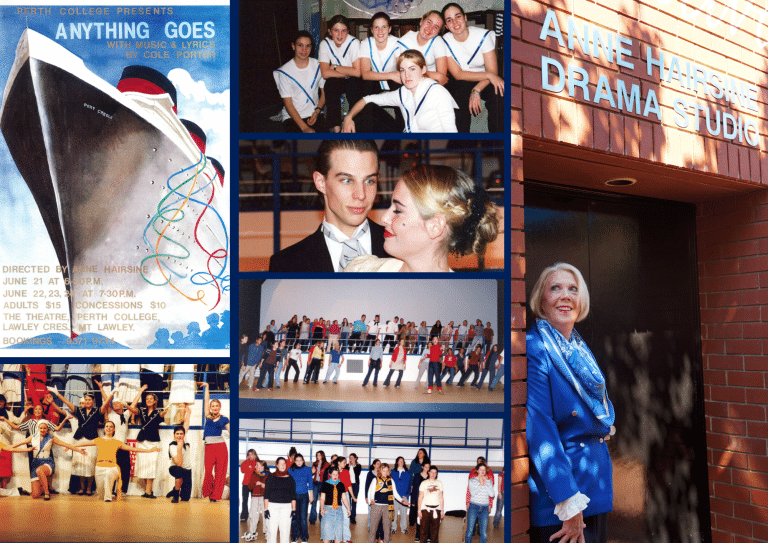Quality Teaching at Perth College
Perth College’s Commitment to Quality Learning and Teaching
At Perth College, our dedication to quality learning and teaching is embodied in a set of “Observables” that guide our classroom practice. These Observables are the foundation of our educational approach, ensuring that every lesson is purposeful, engaging, and differentiated to both support and challenge our students. This article highlights how we are implementing these Observables alongside the sparc attributes to foster an environment where every Student can thrive academically and personally so they may contribute positively to the world.
Learning Intentions and Success Criteria
Central to effective teaching is the clear communication of learning intentions and success criteria. Research shows that when students understand what they are learning and what success looks like, they are more likely to achieve their goals (Hattie, 2009). At Perth College, our teachers explicitly share these intentions and criteria as a part of their lessons, to support student focus and motivation. This clarity helps students to take ownership what they are learning today, setting the stage for meaningful progress.
Consolidation of Knowledge
Consolidating knowledge is crucial for deep learning. Our teachers employ various strategies to help students connect new information with prior learning, reinforcing their understanding. Techniques such as retrieval practice and spaced repetition, which are supported by cognitive science, are regularly used to ensure that learning is retained over time (Roediger & Butler, 2011). By revisiting and applying concepts in different contexts to develop their knowledge and skills, so they are supported to be well-prepared for assessments.
Student Engagement and Collaboration
Engagement and collaboration are key to making learning dynamic and interactive. We create opportunities for students to work together, share ideas, and learn from one another. Collaborative learning not only enhances understanding but also builds essential skills such as communication, teamwork, and emotional intelligence (Johnson & Johnson, 2009). At Perth College, we design lessons that encourage active participation, ensuring that every student is engaged and contributing to the learning process as they work towards achieving personal success.
Variety of Pedagogy Appropriate for the Phase of Schooling
Recognizing that students’ needs evolve as they progress through school, we employ a variety of pedagogies (teaching strategies) in the classroom tailored to different phases of schooling. Whether it’s problem-based learning in early adolescence or more structured direct instruction in senior years, our strategies are informed by best practice research (Tomlinson, 2017). This ensures that our pedagogy is developmentally appropriate, challenging, and supportive, catering to the unique needs of students as they progress through the Senior School.
Content Knowledge and Explanations
Our teachers are experts in their subjects, delivering content with clarity and precision. Strong content knowledge allows teachers to provide rich explanations and make connections across topics, helping students to see the bigger picture. This depth of understanding is crucial for developing critical thinking and analytical skills, which are key components of our sparc framework supports our teachers to provide experiences that spark passions, grow attributes, build relationships to contribute to the world.
Supportive Learning Environment and Relationships
At Perth College, we believe that a supportive learning environment is essential for student success. Positive relationships between teachers and students create a sense of safety and belonging, which is foundational for effective learning (Marzano, 2003). Our teachers are not just expert educators; they are mentors who understand and care for each student’s well-being. This supportive atmosphere enables students to take risks, ask questions, and fully engage in their learning journey.
Differentiation
We are committed to meeting the diverse needs of our students through differentiated instruction. By tailoring lessons to the varying abilities, interests, and learning styles within our classrooms, we ensure that every student is challenged and supported. Differentiation is not just a strategy; it’s a teacher mindset that recognizes and values the unique contributions of each student (Tomlinson, 2017). We are fortunate that our staff and students are support by experts in both gifted education and learning difficulties as they work toward students achieving their personal learning goals.
Purposeful Technology Use
Technology is a powerful tool in modern education, but it must be used purposefully. At Perth College, we integrate technology in ways that enhance learning, rather than distract from it. Whether through digital collaboration tools, online resources, or interactive platforms, technology is used to support our educational goals and prepare students to be safe, ethical users of technology (UNESCO, 2023).
Feedback, Questioning, and Student Reflection
Effective feedback is one of the most significant influences on student achievement (Hattie & Timperley, 2007). Our teachers provide timely, specific, and constructive feedback that helps students to understand their progress and identify areas for improvement. We also encourage reflective practices via SPACE, where students assess their own learning, set goals, and take responsibility for their growth by actioning teacher feedback. This self-reflection is a crucial part of developing agency, a key attribute in our sparc attributes framework.
The 3-Part Lesson Structure
The structure of our lessons is intentional, beginning with a starter activity to engage students and activate prior knowledge, followed by the main activities that drive deep learning, and concluding with a reflection or summary that reinforces the day’s learning. This 3-part lesson structure is based on research that highlights the importance of clear and well-planned lesson design (Rosenshine, 2012). It ensures that lessons are cohesive and that students leave the classroom with a solid understanding of their next learning steps.
Integrating SPARC Skills Through the Observables
The integration of the sparc framework—spark passions, grow attributes, build relationships, and contribute to the world and the Observables are key elements that underpin the quality learning and teaching each teacher strives to provide here at Perth College. By embedding skills such as communication, collaboration, creativity and critical thinking, into our daily teaching practices through real-world examples, we prepare our students not just for academic success but for meaningful contributions to society. Opportunity to develop attributes such as cultural and global awareness are woven into our curriculum, ensuring that our girls have the opportunity to become well-rounded, resilient, and ready to navigate the complexities of the world.
At Perth College, we are proud of our commitment to quality learning and teaching. Through our Observables, we provide an education that is not only rigorous and challenging but also nurturing and responsive to the needs of each student. By continuing to refine our practices and integrate the latest educational research, we ensure that our students are equipped with the knowledge, skills, understandings and values they need for personal success in school and beyond.

References:
- Hattie, J. (2009). Visible Learning: A Synthesis of Over 800 Meta-Analyses Relating to Achievement. Routledge.
- Roediger, H. L., & Butler, A. C. (2011). The critical role of retrieval practice in long-term retention. Trends in Cognitive Sciences, 15(1), 20-27.
- Johnson, D. W., & Johnson, R. T. (2009). Cooperation and competition: Theory and research. Interaction Book Company.
- Tomlinson, C. A. (2017). How to Differentiate Instruction in Academically Diverse Classrooms. ASCD.
- UNESCO. (2023). Global Education Monitoring Report 2023. Retrieved from https://gem-report-2023.unesco.org
- Hattie, J., & Timperley, H. (2007). The Power of Feedback. Review of Educational Research, 77(1), 81-112.
- Marzano, R. J. (2003). Classroom Management That Works: Research-Based Strategies for Every Teacher. ASCD.
- Rosenshine, B. (2012). Principles of Instruction: Research-Based Strategies That All Teachers Should Know. American Educator, 36(1), 12-19.




